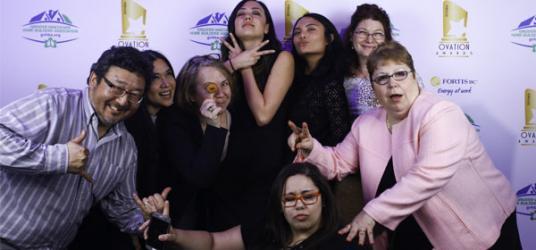
For Communication students, family meetings tend to get awkward quickly when a relative drops the inevitable “what are you studying?” question over turkey dinner, which is almost always followed by the dreaded “what can you do with a degree in Communications?” I’ll be honest and say that even as I’m approaching my last semester of school, I still don’t have an answer to that. I’ve pondered over real-world applications of the things we learn in lectures many times; the School of Communication at SFU is, after all, one of the best programs in North America. But as we all know, Communication classes can be quite heavy on the theory side, and unfortunately, it’s probably never the best idea to whoop out your extensive knowledge of semiotics and Marxism in a job interview. So how do you bridge the gap between academia and industry? My advice: step out of your comfort zone and take a research course.
I was enrolled in CMNS 362 — Evaluation Methods for Applied Communication Research earlier this Spring and I was absolutely terrified. Like, I-called-my-mom-crying-after-I-read-the-syllabus terrified. First, because the class name is a mouthful (please explain to me how you ‘evaluate’, ‘apply’, and ‘research’ something at the same time?). I’ll also admit that I initially only took the class for a lack of better options, not because I had a genuine interest in it. But perhaps the scariest thing of all was the fact that course was 6 credits. SIX. That’s twice the number of credits from a normal course.
By the end of the semester, however, I called my mom again and—to her surprise—told her that CMNS 362 was hands-down the best class I’ve ever taken at SFU. The best part of it? The course equipped me with so many life skills that it helped me land a Market Research co-op position with the Greater Vancouver Home Builders’ Association (GVHBA). Here’s 4 reasons why taking a research course helps better prepare you for work life.
1. You Have to Deal With Real People
A large component of CMNS 362 is planning and recruiting people for a focus group or interview to get primary data for your research, and they can’t be family, friends, or SFU students. In other words, you have to find ways to get strangers interested to participate in your study…for free. This is great for two reasons. First, it’s sort of like a mini-marketing project. How do I sell my research project to appeal to a specific audience? Second, you get to practice dealing with different kinds of people, and not to mention the amount of rejection you get when the people you ask say ‘no, thank you’ (which will happen a lot both in this class and in life). Interacting with people outside of a school setting will help you grow your interpersonal skills, which is always a plus point to an employer.
2. You Learn SPSS Statistics
Which is a software that helps you evaluate your survey data to a very advanced level? Not only does this look really good on a resume, but the statistical portion of the course also works your right brain and preps you for all sorts of analytical work you’re bound to do when you start working. For example, in my role as Market Research Coordinator, I have occasionally assisted in running the website and social media analytics for our company.
3. The Entire Course Is Group Work
As much as we’ve all had our fair share of bad experiences with group work, you’ll rarely find yourself working in isolation in the real world. In my position with the GVHBA, I help manage a website that essentially holds 1000+ microsites for our member companies, who reach out to me with technical difficulties and expect me to help solve it for them. This is what group work trains you for, at a smaller scale. When issues arise in a classroom setting, you learn how to assess a situation, effectively communicate your thoughts, and navigate other personalities in order to come up with a solution.
4. Above All, It Will Challenge You and Make You a Better Person For It
By now, you should be able to whip up a 2,000-word paper in a week (or overnight) like it’s no big deal, but you’re probably not attuned to planning and executing an original research project from the ground up in less than 4 months. Meeting a challenge helps you get out of your comfort zone, conquer mental resistance, and propels you into the just-do-it state of mind. In the working world, you’ll often be placed in situations that are new and demanding. In my case, I had to interview several residential construction builders who owned multi-million-dollar companies. It’s nerve-racking picking up that phone each time, but I know I’ll improve with every phone call I make.
As my grandma likes to point out at our family dinners, suffering only builds character.













